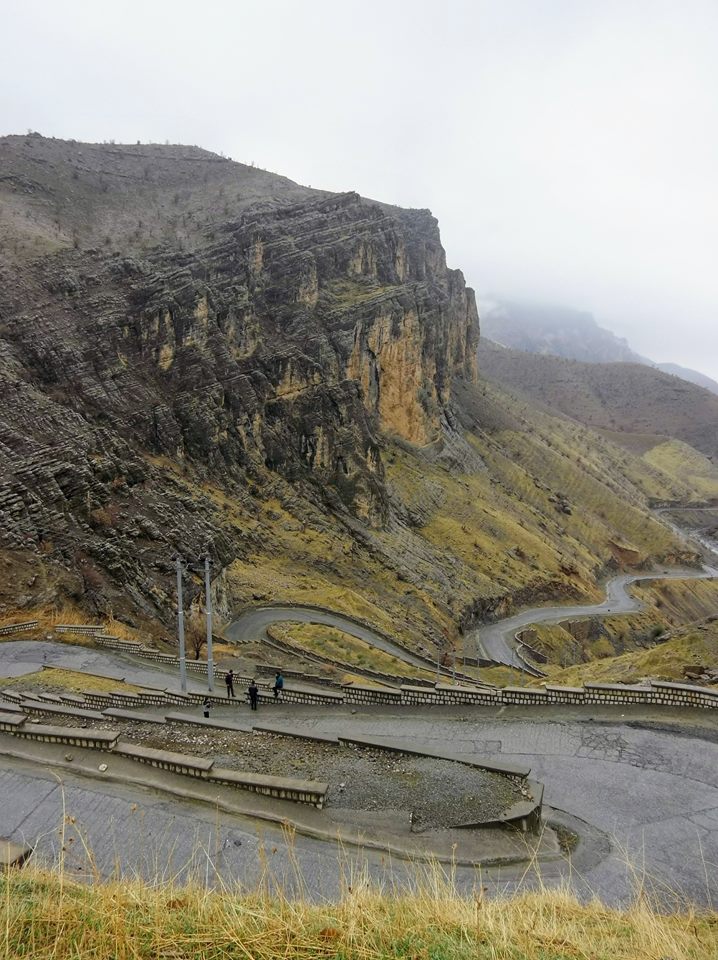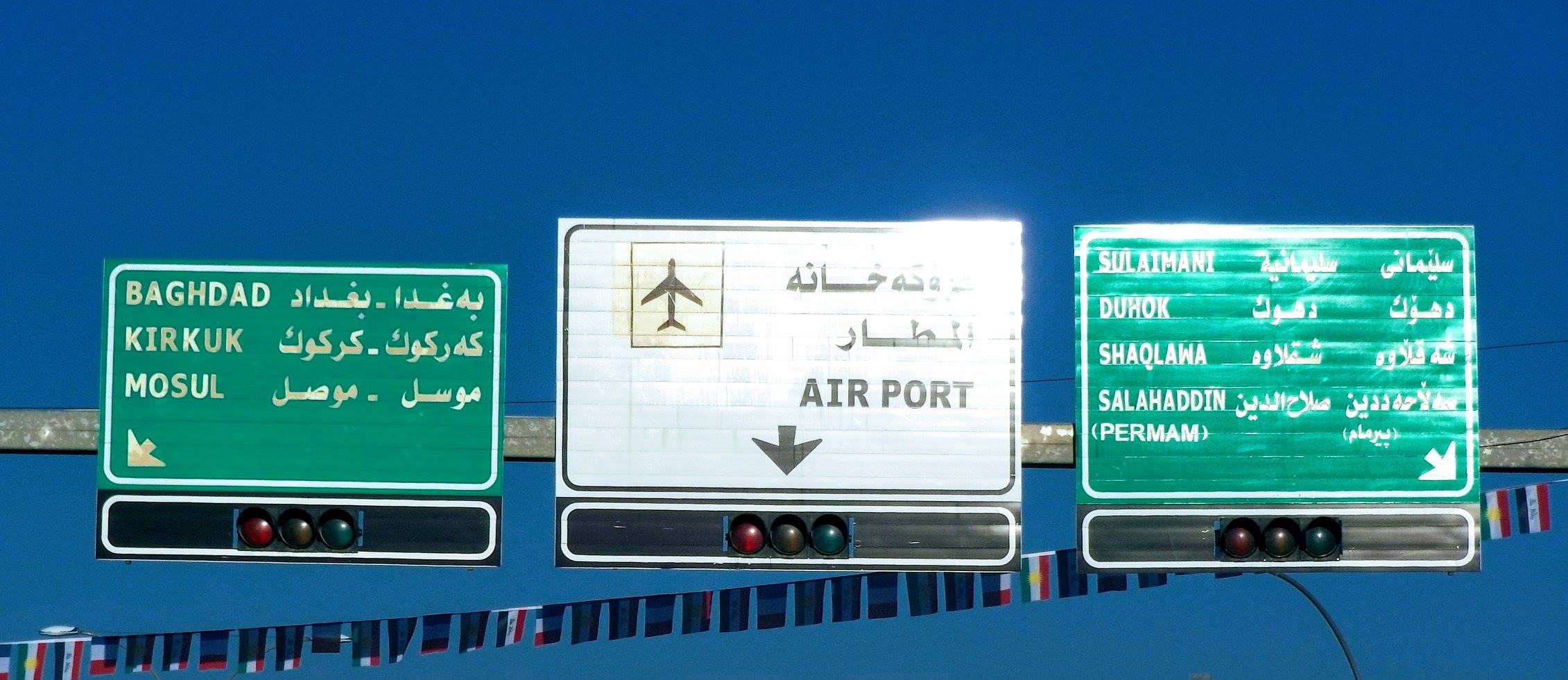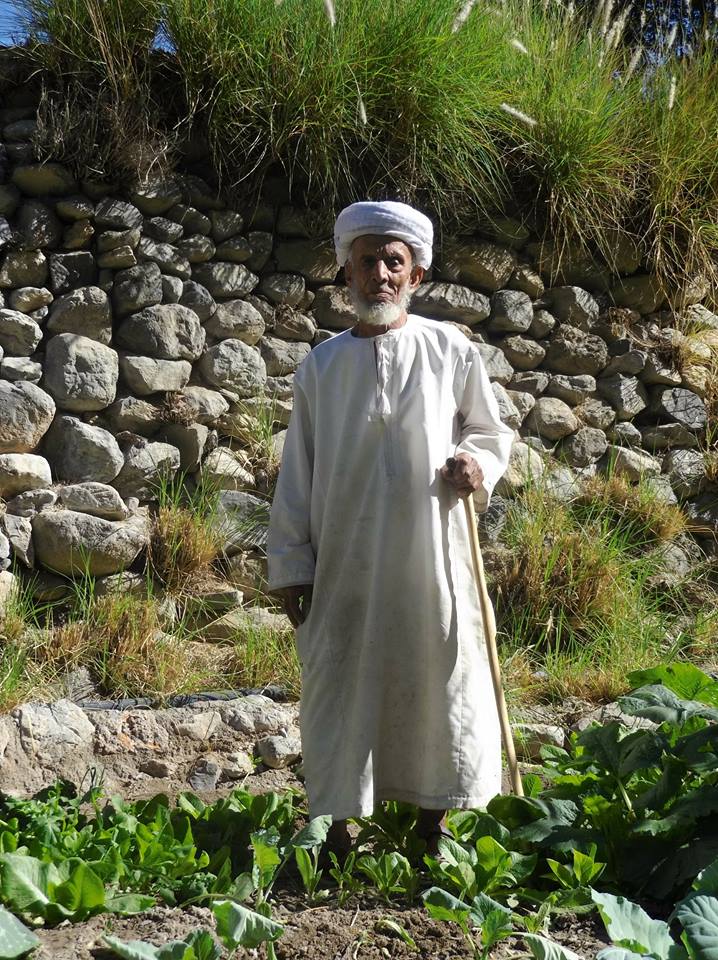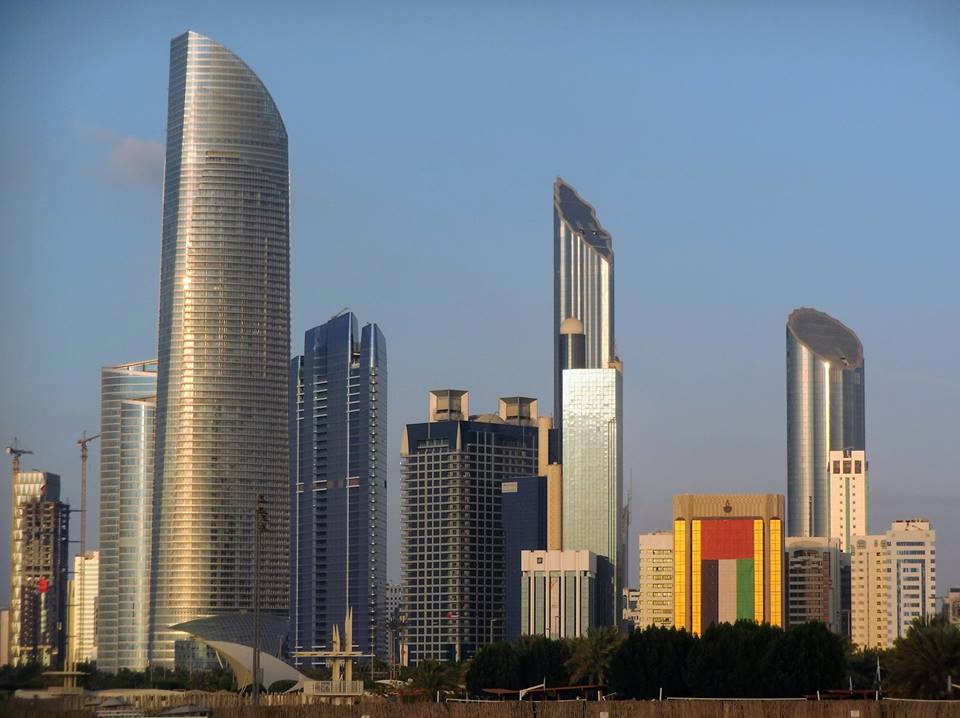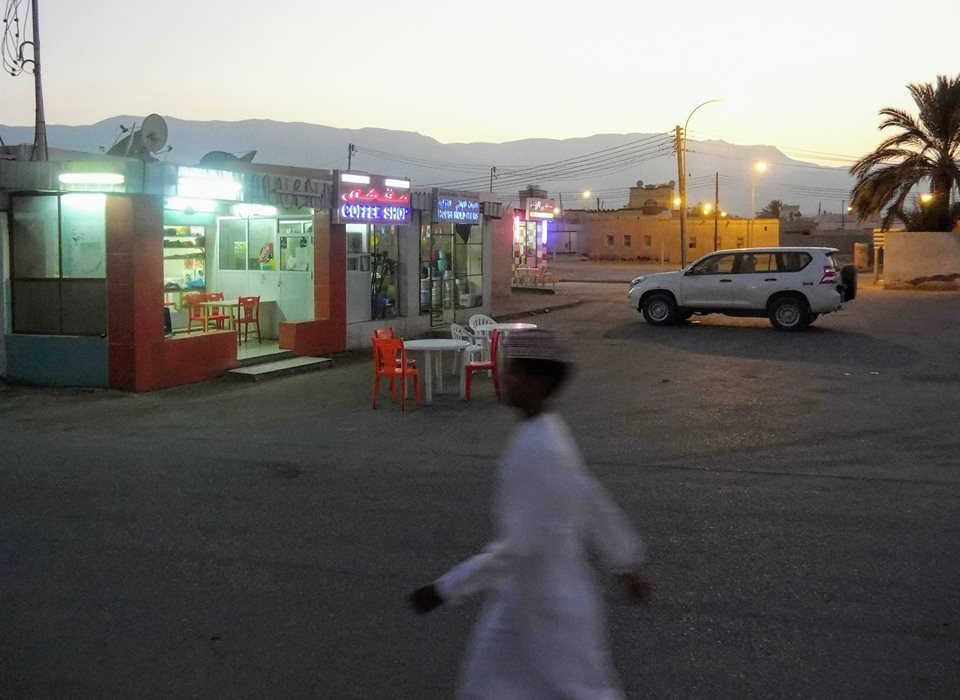SWEDISH KURD OR KURDISH SWEDE
On a freezing cold mountain road, a soldier calls for me to stop my car. He says “Passport.” and “Don’t be afraid”.
I’m not afraid, but surprised that this is even a checkpoint. It’s just four guys by the roadside. I almost drove by them. They have weapons of course, but so do many people here.
I tell him I’m from Sweden even though I have an American passport. I’m told to pull over and wait.
Another soldier comes back with my passport and says “Men då pratar du svenska då?”. I get a little startled. He just spoke to me in Swedish!
Turns out he lived in Sweden from age 5 to 16, and now he’s back in Kurdistan standing guard high up in the mountains. We laugh and talk about Sweden, a country that we’ve both left behind but still like.
He’s one of many Kurdish people who left their country during the violent years, but have now returned home. In northeastern Iraq they’ve built a safe-ish haven, a haven so calm that people from the rest of Iraq go there on vacation to get away from the constant death and mayhem.
While I understand wanting to come back and rebuild the homeland, I can’t help thinking that this young man could’ve had a much more comfortable life had he stayed in Sweden.
Now he takes off his gloves and struggles to write me a note in the wind chill. “Give this to the guys at the next check post and they’ll let you through.”
Customer service with a smile.
UP TOP
A few checkpoints later, I turn off the main road where the sign says “Teleferic”. Up the mountain, to the snow.
At Korek, I park and let the fast, Swiss-made gondola-lift take me to the mountain top. Happy Kurds are frolicking in the snow, drinking hot chocolate, and taking in the view. Groups of young men and women sit together, a stark contrast from the stubborn gender segregation in other parts of the MiddleEast.
This isn’t what I expected of Iraq. But then again, I’m not sure what I expected.
Iraq has become an almost mythical place of cruel despots and unending suffering, where the lives of regular Iraqis rarely reach the mainstream media. To see these middle-class people enjoy a day off is a comforting reminder that life in this beat-up region goes on, as it has for a hundred generations and will for a hundred more.
DANIEL’S RESTING PLACE
Kirkuk is not in the Kurdistan Semi-Autonomous Province, but still safe enough to drive through. At least so says the people I ask. I calculate the odds of being kidnapped, blown up and/or murdered if I stop in the town and have lunch. The odds are acceptable.
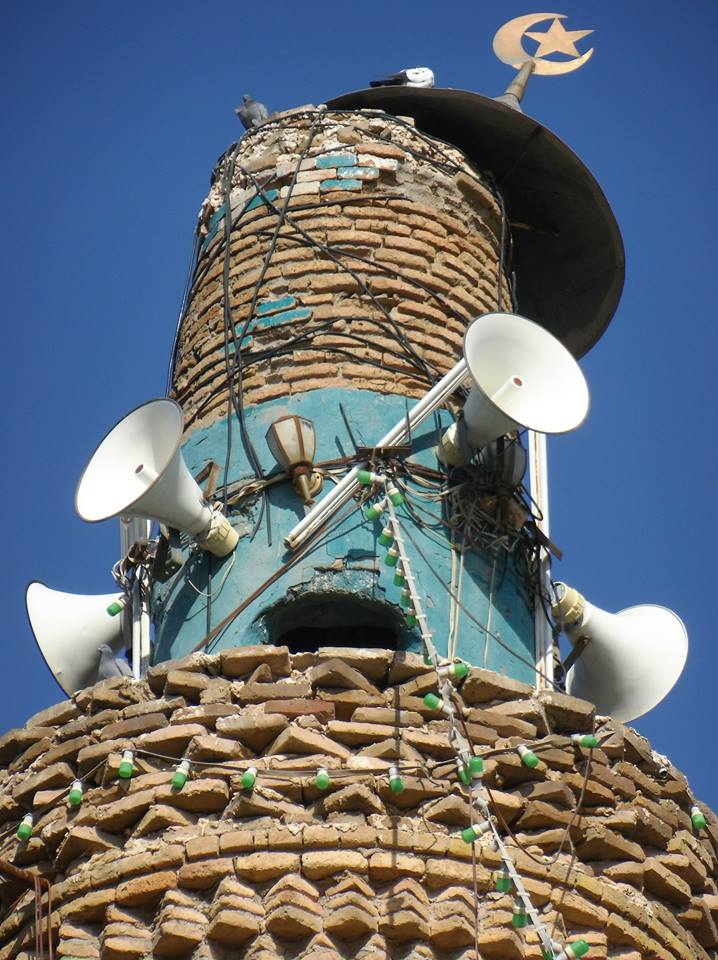
One of the burial places of the Prophet Daniel is in Kirkuk. Situated on a hill in the middle of town, the tomb is closed to visitors on this day, but when I explain to the guard that my name is Daniel and that I’ve traveled from afar, he lets me in.
Dust, rubble, some houses, a mosque. Dogs sleeping in a neglected garden. As with most places I travel to, there is really nothing to see but life itself.
I attempt to tip the guard on the way out, but he refuses my money. This city that has seen so much is still hospitable to strangers.
Down the hill, the riverbank is overgrown and doubles as a garbage dump. A young man sells cell phone paraphernalia from a cart. I say hello, but he speaks no English. A shame, as I’d love to hear the stories of someone who’s seen nothing but war and conflict.
As Kirkuk is presumably in Iraq proper, I should probably have an Iraqi visa to visit here. While having a fly infested lunch at a sticky table, I hope this won’t be an issue at the next checkpoint. Taking a road trip in a conflict zone is, shall we say, interesting.
At the covered market, food is sold from simple stalls. More dust. More flies. More smell. I snap a few quick photos, say “thank you”, and move on. I’m not comfortable lingering here. It’s not that anyone seems hostile; why would they be? It’s more that I have no idea what’s going on in this place.
The real fear is not any of all the things I know could go wrong driving through this part of Iraq. The real fear is all the things I don’t know that could go wrong. Like Donald Rumsfeld so wisely said, the real problem is the unknown unknowns.
Returning to the car, I walk by an empty, bullet-hole ridden shell of a building. On the ground floor is an open shoe store.
Full of thoughts, I drive out of town. The roadsigns offer me a sobering choice: Take a left to Mosul where ISIS is throwing people like me off of high buildings. Or take a right to Erbil and my reserved room at a clean and modern hotel.
I take a right.
OLDEST CITY IN THE WORLD?
Back in Erbil, I walk up to the citadel in pouring rain. Trying to stay dry, I’ve put on too many layers and now I’m sweating. My feet are getting wet and my umbrella is too small. This wasn’t in the brochure.
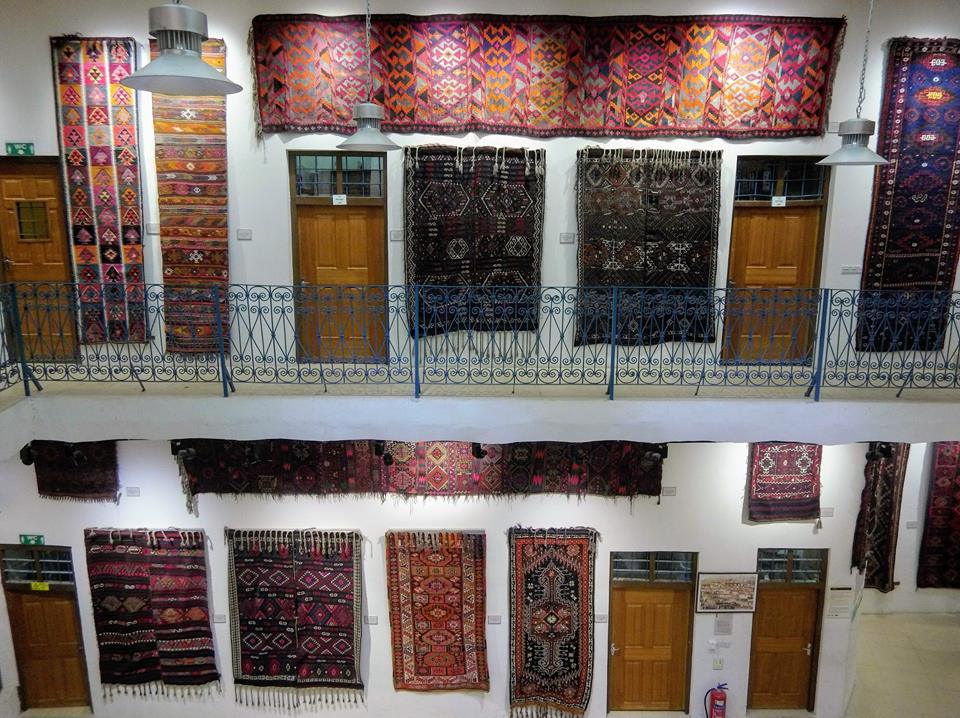
The citadel is on a mound in the middle of town. A fortress, of course, but also a village. A lot of it has been torn down and rebuilt over the years, but word has it that people have lived on this hill for over 5000 years. Today it’s deserted.
Along the main street, buildings are restored and look new. The winding alleys with the older houses are closed off, a sign says entering is too dangerous. I enter anyway just to immediately have gibberish shouted at me by a guard. I scamper over to the Museum for Kurdish Textiles like a drenched cat.
A quick walk through the rooms and I find a cafe upstairs. There are big vents blowing dry air everywhere to keep the humidity levels down and I hang my wet jackets to dry on some chairs. I seem to be alone in the building.
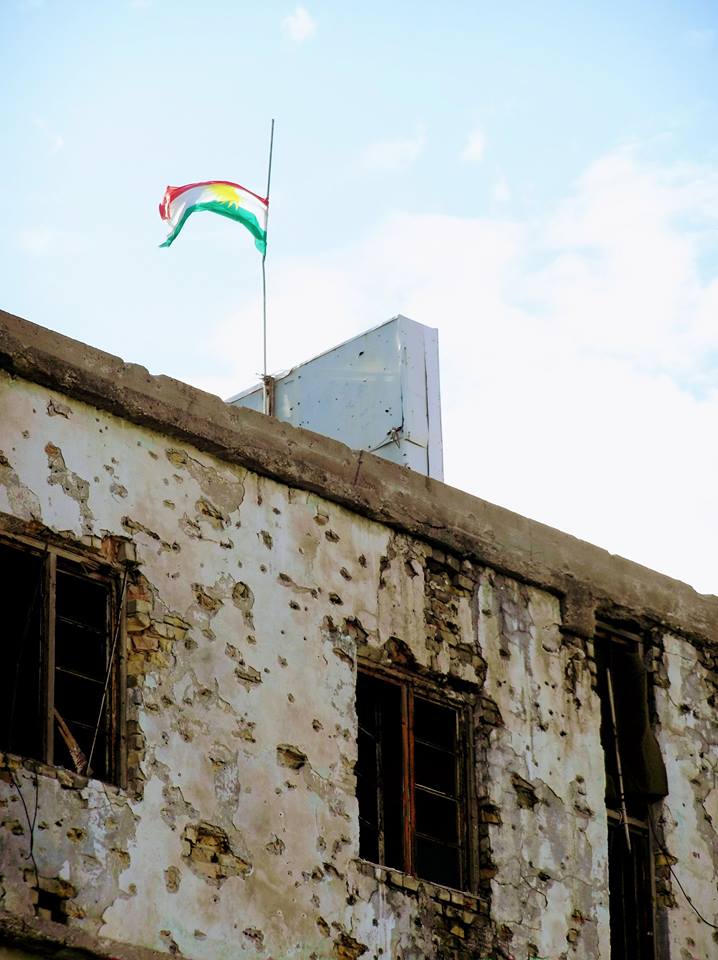
After half an hour or so a man appears, serves me a glass of tea, and disappears. The humming from the air vents is all that keeps me company, then the power goes out and all I hear is the rain. I am scaringly comfortable with that.
Two more visitors come in. The rain doesn’t stop. I venture out looking for lunch. Anything will do.
TO THE AIRPORT
“-It’s 7-10 minutes”, says the guy at the hotel when I ask him how long it will take me to drive to the airport. I know he’s wrong. I went there once before and 10 minutes is a fantasy.
First I have to find my way. The signing in Erbil is not the best and I’m glad I have my GPS. After a couple of U-turns I am on the right street.
Then there’re the security checks, starting with a soldier asking where I’m going (funny question as the road I’m on leads only to the airport), then zigzagging through some concrete barriers to get to the actual checkpoint.
Join the line of cars, stop, get out and open all doors and the trunk, get patted down while dogs sniff the vehicle and soldiers look at my luggage. Show my passport.
While waiting I wonder how many times I’ve heard on the news that someone “blew themselves up at a checkpoint”. This is one of those checkpoints.
I get released and can now drive on to the airport. Well, almost to the airport.
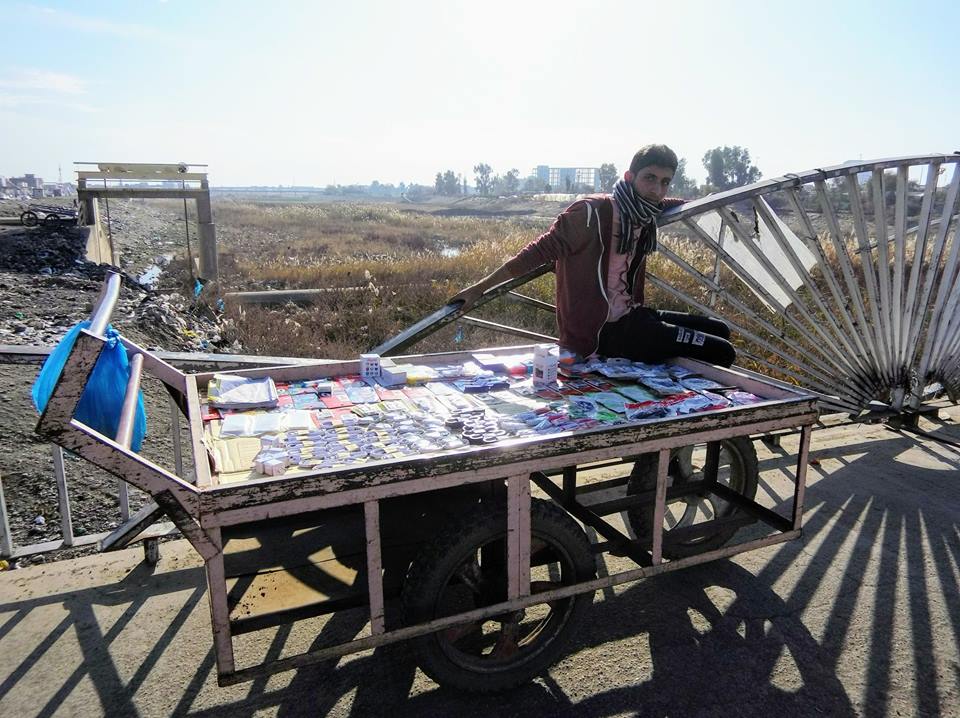
After returning the rental car I am at the Meet&Greet satellite terminal. This is as far as non-ticketed people can go. Here my bags are x-rayed and I have to go through a metal detector.
I then get on a shuttle bus that takes me to the actual airport terminal where I can check in and go through passport control.
With a quick stop for coffee and a muffin I then go through one more bag x-ray and metal detector. Belt and shoes off.
My bag gets flagged for a hand check and the officer confiscates the only souvenir I bought: four bars of Laurel soap, a MiddleEastern speciality that I realize looks exactly like Semtex.
When all is said and done I have showed my passport six times in an hour. I’m boarding the plane alive. That’s a good thing.
